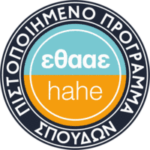| Γραφείο |
Νέο κτίριο Ζ12, 7ος όροφος
|
| Τίτλοι σπουδών |
Πτυχίο Οικονομικής Επιστήμης από το Εθνικό Καποδιστριακό Πανεπιστήμιο
Μεταπτυχιακές σπουδές στο Ινστιτούτο Περιφερειακής Ανάπτυξης του Παντείου Πανεπιστημίου
Διδακτορικό από το Vrij University, Amsterdam, Department of Regional and Environmental Economics
|
| Βιογραφικό |
Ο Κώστας Μπίθας είναι Καθηγητής Οικονομικής Περιβάλλοντος, Περιβαλλοντικής Πολιτικής στο Πάντειο Πανεπιστήμιο, Τμήμα Οικονομικής και Περιφερειακής Ανάπτυξης και επισκέπτης ερευνητής Institute for system integration and sustainability. Michigan State University, USA. Πτυχίο Οικονομικής Επιστήμης από το Εθνικό Καποδιστριακό Πανεπιστήμιο, μεταπτυχιακές σπουδές στο Ινστιτούτο Περιφερειακής Ανάπτυξης του Παντείου Πανεπιστημίου και διδακτορικό από το Vrij University, Amsterdam, Department of Regional and Environmental Economics. Είναι Μέλος του Διοικητικού Συμβουλίου του Ερευνητικού Πανεπιστημιακού Ινστιτούτου Περιβάλλοντος και Ανθρώπινου Δυναμικού. Έχει συμμετάσχει σε πλήθος ερευνητικών προγραμμάτων και έχει συγγράψει ένα σημαντικό αριθμό άρθρων σε επιστημονικά περιοδικά και σε συλλογικούς τόμους.
Πλήρες βιογραφικό
|
| Μαθήματα |
– Προπτυχιακό
1. Οικονομική & Πολιτική Περιβάλλοντος
2. Οικονομική Ανάλυση και Πολιτική Μεταφορών
3. Οικονομική Περιβάλλοντος, Φυσικών Πόρων, Βιώσιμης Ανάπτυξης
4. Τουριστική Ανάπτυξη
-Μεταπτυχιακό
1. Οικονομική του Περιβάλλοντος
|
| Πρόσφατες δημοσιεύσεις |
1. Bithas, K., & Kalimeris, P., (2017). The Material Intensity of Growth: Implications from the Human Scale of Production. Social Indicators Research Vol. 133 (3), pp. 1011–1029. http://link.springer.com/article/10.1007/s11205-016-1401-7
2. Bithas, K., Latinopoulos, D., Kolimenakis, A. and Richardson, C., (2018). Social benefits from controlling invasive Asian tiger and native mosquitoes: a stated preference study in Athens, Greece. Ecological Economics, 145, pp.46-56.
3. Bithas, K., & Kalimeris, P., (2018). Unmasking decoupling. Redefining the Resource Intensity of the Economy. Science of the Total Environment, 619-620C: pp. 338-351
http://www.sciencedirect.com/science/article/pii/S004896971733114
4. Bithas, K., & Kalimeris, P., (2018). Matter matters. Reconsidering the (de)materialization of a hundred years of growth. Journal of BioPhysical Economics and Resources Quality 3(1): 1-10.
https://link.springer.com/content/pdf/10.1007%2Fs41247-017-0034-z.pdf
5. Latinopoulos, D., Mentis, C., Bithas, K. (2018). The impact of a public information campaign on preferences for marine environmental protection. The case of plastic waste, Marine Pollution Bulletin, 131, 151-162. 6. A Kolimenakis, K Bithas, D Latinopoulos, C Richardson, 2019. On lifestyle trends, health and mosquitoes: Formulating welfare levels for control of the Asian tiger mosquito in Greece. PLoS neglected tropical diseases 13 (6), e0007467.
7. K Bithas, 2019. A bioeconomic approach to sustainable development: Incorporating ecological thresholds within intergenerational efficiency. Sustainable Development 2019, 1-9. https://doi.org/10.1002/sd.2027 8. Antonios Kolimenakis, Dionysios Latinopoulos, Kostas Bithas, Clive Richardson, Konstantinos Lagouvardos, Angeliki Stefopoulou, Dimitrios Papachristos, Antonios Michaelakis, 2019. Exploring public preferences, priorities, and policy perspectives for controlling invasive mosquito species in Greece. Tropical medicine and infectious disease 4 (2), 83. 9. P Kalimeris, K Bithas, C Richardson, P Nijkamp, 2020. Hidden linkages between resources and economy: A “Beyond-GDP” approach using alternative welfare indicators. Ecological Economics 169, 106508. https://doi.org/10.1016/j.ecolecon.2019.106508 10. K Bithas, 2020. A bioeconomic approach to sustainability with Ecological thresholds as an operational indicator. Environmental and Sustainability Indicators 6, 100027. https://doi.org/10.1016/j.indic.2020.100027
|





